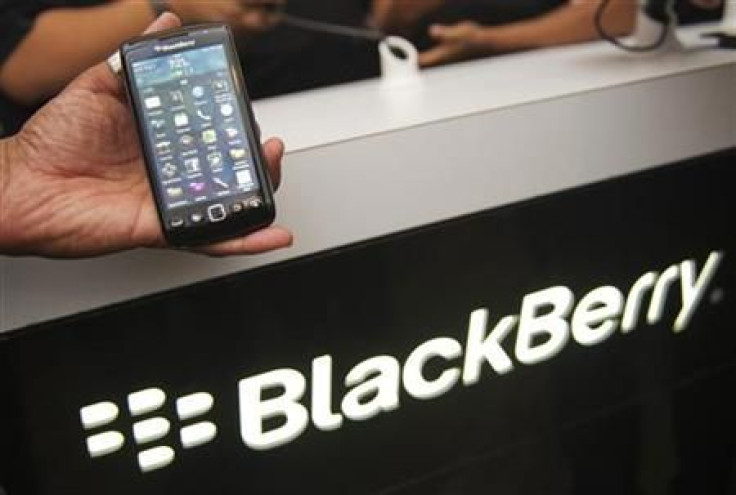Apple iPhone 5 Will 'Steamroll' BlackBerry 7

Research in Motion is banking on its new BlackBerry smartphones to help pull it out of a rut, but industry watchers believe the new devices will be no match for Apple's upcoming iPhone 5.
The Canadian technology company posted dismal earnings numbers this week, missing even its own revenue and sales targets, while margins continued to shrink.
But the company is hoping that the launch of new smartphones based on newer software -- dubbed BlackBerry 7's -- will help the company get its grove back, and buy enough time for it to roll out its delayed next-generation platform: QNX
Granted, RIM had successfully launched a range of BlackBerry 7 smartphones around the world...and [is] seeing strong sell-through and customer interest for these new products, according to Co-CEO Jim Balsillie, on the earnings call.
He added that the new BlackBerry units shipped last month have been enthusiastically received by our partners and customers for their blend of technical performance and industrial design.
But the effort will not be enough to stop upcoming onslaught expected from Apple's own next-generation smartphone, the iPhone 5.
Widely expected to come in October, the iPhone 5 will steamroll BlackBerry 7, according to Ticonderoga Securities analyst Brian White.
In our view, the fall of RIMM with its 'too-little-too-late' BlackBerry refresh will continue to add to Apple's momentum that we believe could be off the charts with the iPhone 5 launch.
White's sentiment was all but qualified as other industry observers projected huge demand for the upcoming device as well.
Early this week Mike Abramsky at RBC told clients that an estimated 66 percent of existing iPhone users were very/somewhat likely to buy the iPhone 5, characterizing what he calls unprecedented demand.
RIM's shares took a beating on Friday, tumbling as much as 24 percent after poor earnings and a weak outlook.
The company has had decent sales in international markets, but is rapidly losing market-share in the lucrative North American market, hurting its margins and its brand.
The decline in its handset with investors and consumers highlights how far the company's technology has fallen out of favor in face of competitors Apple and Google.
It has since hit the labs to get the QNX software powering its PlayBook tablet onto its next generation of smartphones, but the transition hasn't been smooth, and the company has failed to give a clear launch date.
Highlighting a widening gap, RIM sold just 10.6 million units in the second quarter, while Apple sold more 20 million iPhones. RIM's own outlook was for BlackBerry shipments of between 11 million and 12.5 million
© Copyright IBTimes 2024. All rights reserved.











